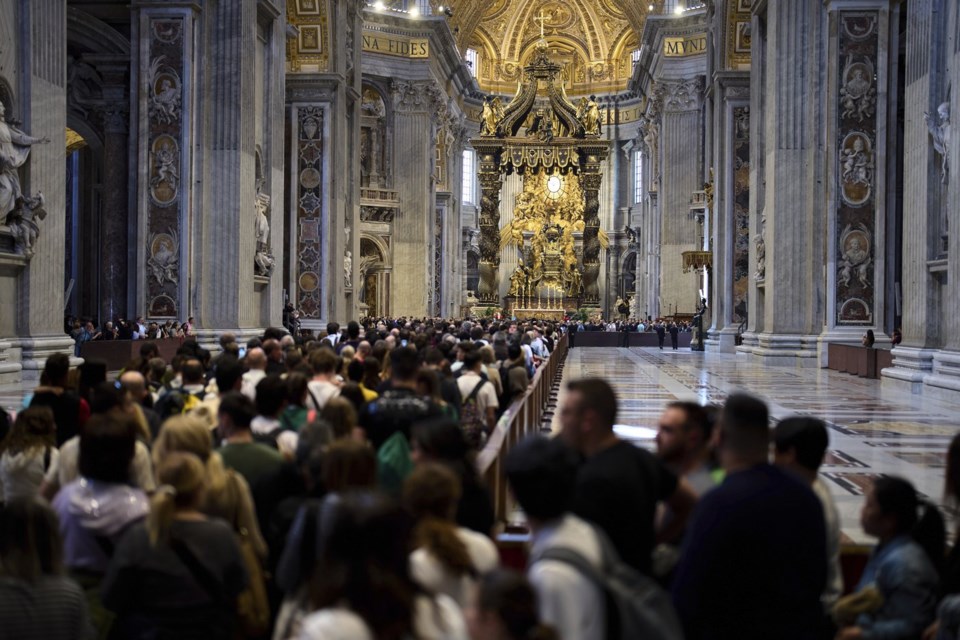Canadians are among the thousands converging on St. Peter's Square this morning to attend the funeral of Pope Francis.
Francis died Monday at age 88 and is being remembered as a pontiff dedicated to building bridges and offering compassion to marginalized groups during his 12-year papacy.
The Vatican has said the funeral is expected to attract dignitaries and leaders from around the world, including roughly 130 delegations, at least 50 heads of state and 10 reigning sovereigns.
Gov. Gen. Mary Simon is leading Canada's delegation alongside her husband and the Senate speaker.
Major Indigenous leaders will also be joining, as will Supreme Court Chief Justice Richard Wagner.
Prime Minister Mark Carney has said he won't be attending, citing the federal election campaign.
All five of Canada's cardinals are expected to attend, along with various bishops, Manitoba Métis Federation President David Chartrand, Quebec's International Relations Minister Martine Biron and Chief Wilton Littlechild, who gifted the pontiff a traditional headdress when he visited Canada in 2022.
U.S. President Donald Trump and Ukrainian President Volodymyr Zelenskyy are some of the world leaders travelling to Vatican City for the event, which follows days of public viewings at St. Peter's Basilica, where tens of thousands of mourners lined up for hours to pay their respects.
The Vatican has said Francis died of a stroke and heart failure.
Tributes have poured in from Catholics and non-Catholics alike, characterizing Francis' tenure as head of the Catholic Church as one that called for inclusion, concern for the poor and kindness.
Francis did face criticism from conservatives who sometimes felt alienated by his progressive leanings.
Nearly 11 million Canadians identified as Catholic in the 2021 census, second only to those without a religious affiliation.
Francis is being remembered by Canadian Catholics as a progressive leader whose approach to the papacy helped usher in a new era of Indigenous relations and make the church more responsive to rank and file.
His most lasting impact in Canada is likely to be his response to one of the Truth and Reconciliation Commission's calls to action: that he apologize for the legacy of residential schools on Canadian soil.
That apology came in 2022, when the pope said he was sorry that some members of the Catholic church participated in the abuse, cultural destruction and forced assimilation of Indigenous Peoples.
About 150,000 Indigenous children were forced to attend residential schools for over a century. The Catholic church ran about 60 per cent of the institutions.
Many Indigenous people said the apology was necessary, but some said he didn't go far enough because Francis didn't name the crimes and abuses that happened in the facilities.
Simon, who is Inuk, recently said the apology was "a testament to his commitment to respect, dialogue and collaboration across cultures and faiths."
The pope will be buried in a niche within the St. Mary Major Basilica, home to his favourite icon of the Virgin Mary, to whom he was particularly devoted.
-- with files from The Associated Press.
This report by The Canadian Press was first published April 26, 2025.
The Canadian Press



